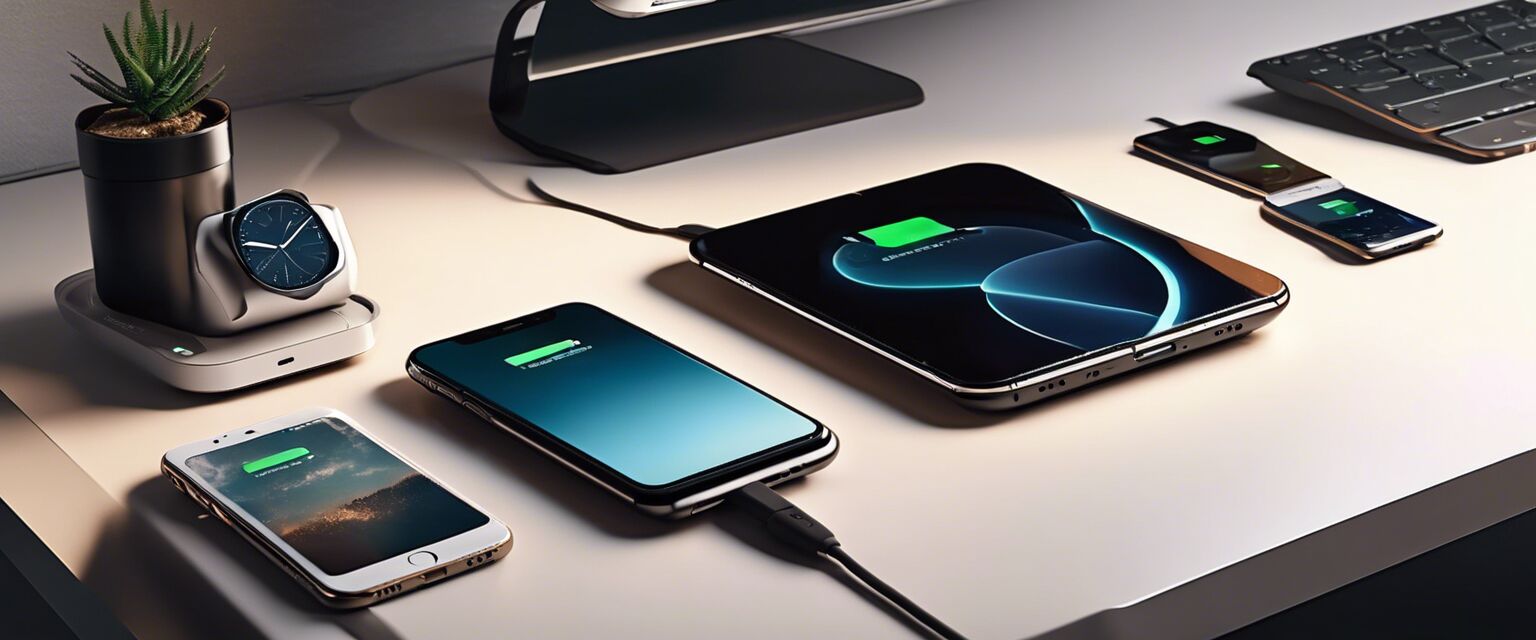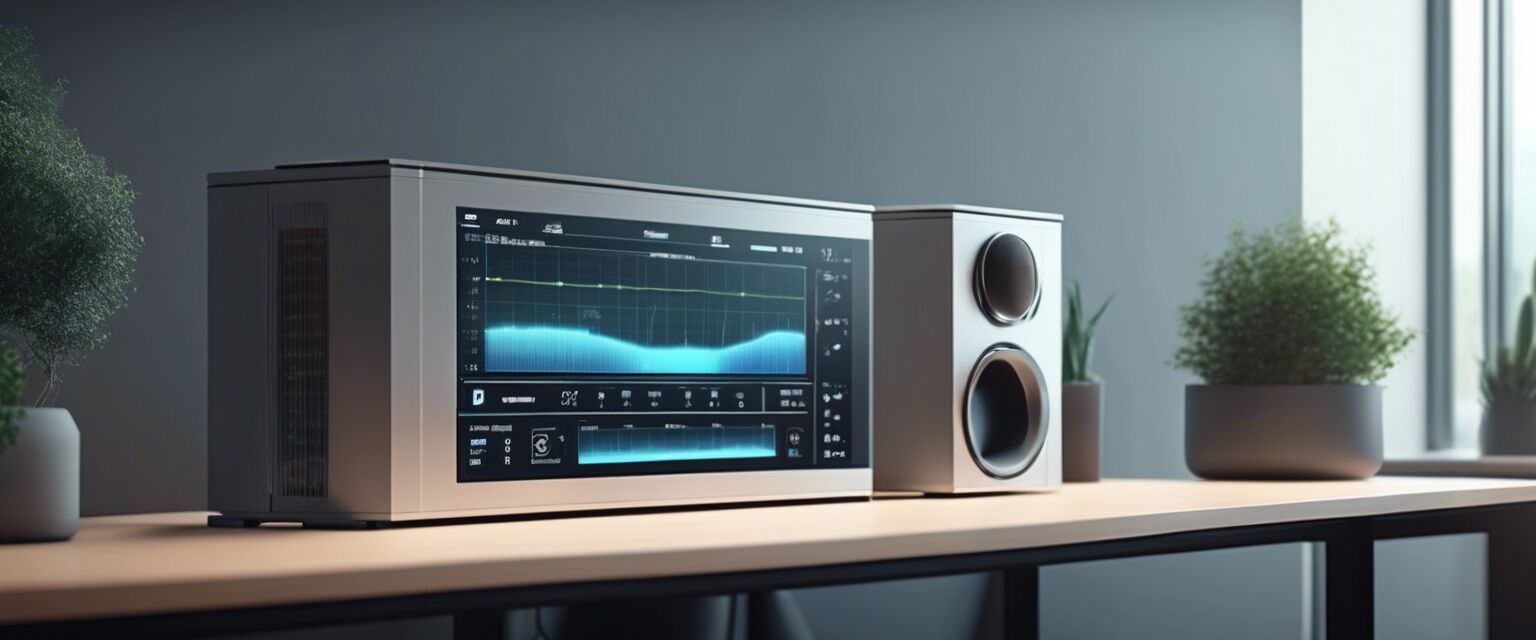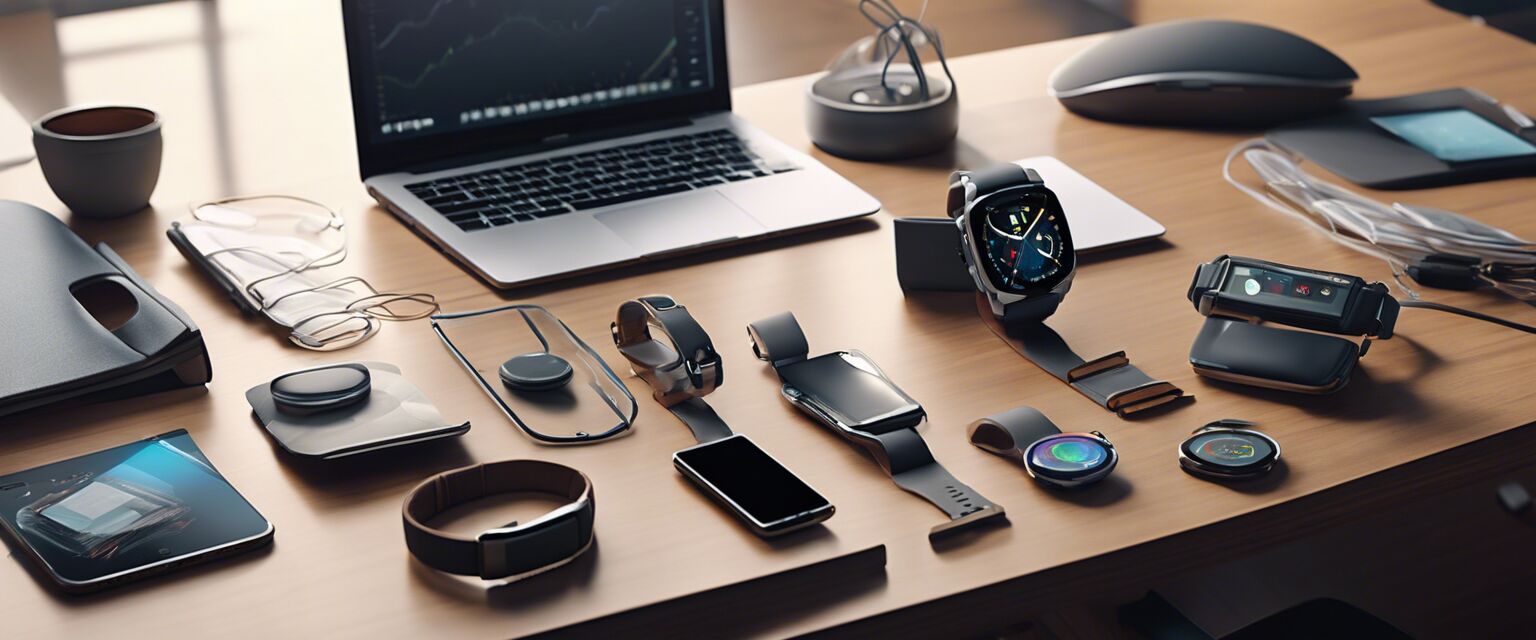
Wireless Charging Solutions
Key Takeaways
- Wireless charging offers convenience and reduces cable clutter in your office.
- Compatibility with various devices is crucial when choosing a wireless charger.
- Fast charging capabilities can enhance productivity by reducing downtime.
- Look for safety features to protect your devices while charging.
In today's fast-paced work environment, keeping your devices charged and ready to go is essential. Wireless charging solutions provide a modern, efficient way to power up your gadgets without the hassle of tangled cords. This article will guide you through the different types of wireless chargers available, their benefits, and how to choose the best option for an organized and efficient office setup.
Types of Wireless Charging Solutions
| Type | Description | Ideal For |
|---|---|---|
| Pad Chargers | Flat surface to place devices for charging. | Smartphones, earbuds, and small devices. |
| Stand Chargers | Upright position for easy viewing while charging. | Smartphones and larger devices for multitasking. |
| Multi-Device Chargers | Charge multiple devices simultaneously. | Offices with multiple gadgets or shared workspaces. |
| Integrated Chargers | Chargers built into furniture or desks. | Modern office setups for minimalistic design. |
Benefits of Wireless Charging
- Convenience: Simply place your device on the charger without plugging and unplugging cables.
- Reduced Clutter: Fewer cords mean a cleaner workspace, leading to better focus and productivity.
- Compatibility: Many wireless chargers support various devices, allowing you to charge smartphones, earbuds, and even smartwatches.
- Fast Charging: Many modern wireless chargers offer fast charging capabilities, ensuring your devices are powered up quickly.
Choosing the Right Wireless Charger
Consider Compatibility
Before purchasing a wireless charger, ensure it is compatible with your devices. Look for chargers that support Qi-enabled devices as most modern smartphones and gadgets are designed to work with this standard.
Evaluate Charging Speed
Charging speed varies among different models. If you need quick power-ups, consider chargers that offer fast charging support.
Safety Features
Opt for chargers equipped with overcharge protection, temperature control, and foreign object detection to keep your devices safe while charging.
Design and Aesthetics
The design of your wireless charger can impact the overall look of your office. Choose a model that complements your workspace decor.
Top Wireless Charging Solutions for Your Office
Here are some popular categories of wireless charging solutions that can enhance your office setup:
- Wireless charging stations
- Smart lights
- Automated office tools
- Ergonomic smart furniture
- Collaborative tech tools
Comparison of Popular Wireless Chargers
| Charger Model | Type | Charging Speed | Price |
|---|---|---|---|
| Charger A | Pad Charger | 10W | $29.99 |
| Charger B | Stand Charger | 15W | $39.99 |
| Charger C | Multi-Device Charger | 10W (each device) | $59.99 |
| Charger D | Integrated Charger | 15W | $79.99 |
Tips for Using Wireless Chargers
Beginner's Tips
- Ensure your device is aligned properly on the charger for optimal charging.
- Remove any thick cases that may interfere with charging.
- Keep the charging surface clean to avoid interruptions.
- Consider using a charger with LED indicators to monitor charging status.
Conclusion
Wireless charging solutions represent a significant advancement in office technology, offering convenience and organization for professionals. By selecting the right charger based on your needs and preferences, you can create a streamlined workspace that enhances productivity. Evaluate compatibility, charging speed, and safety features when making your choice, and enjoy the benefits of a clutter-free, efficient office.
Pros
- Enhances organization by reducing cable clutter.
- Offers convenience for charging multiple devices.
- Many models support fast charging capabilities.
- Variety of designs to match office aesthetics.
Cons
- May charge devices slower than traditional wired chargers.
- Compatibility issues with non-Qi-enabled devices.
- Some chargers can be more expensive than wired alternatives.










